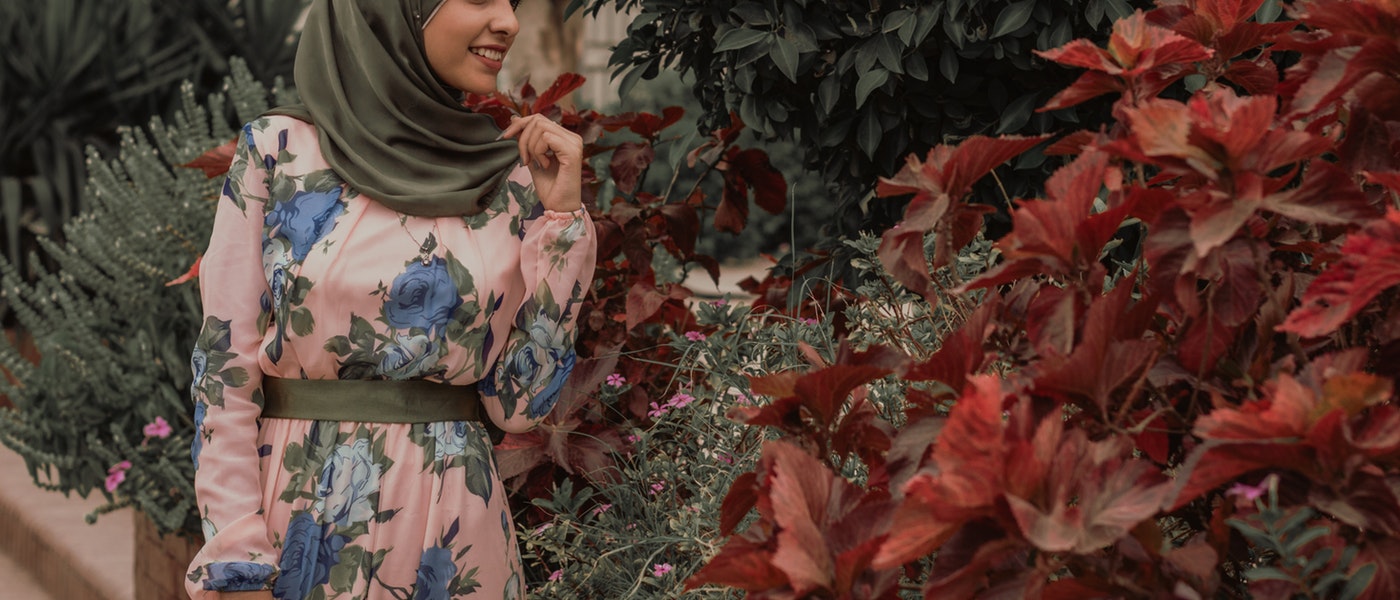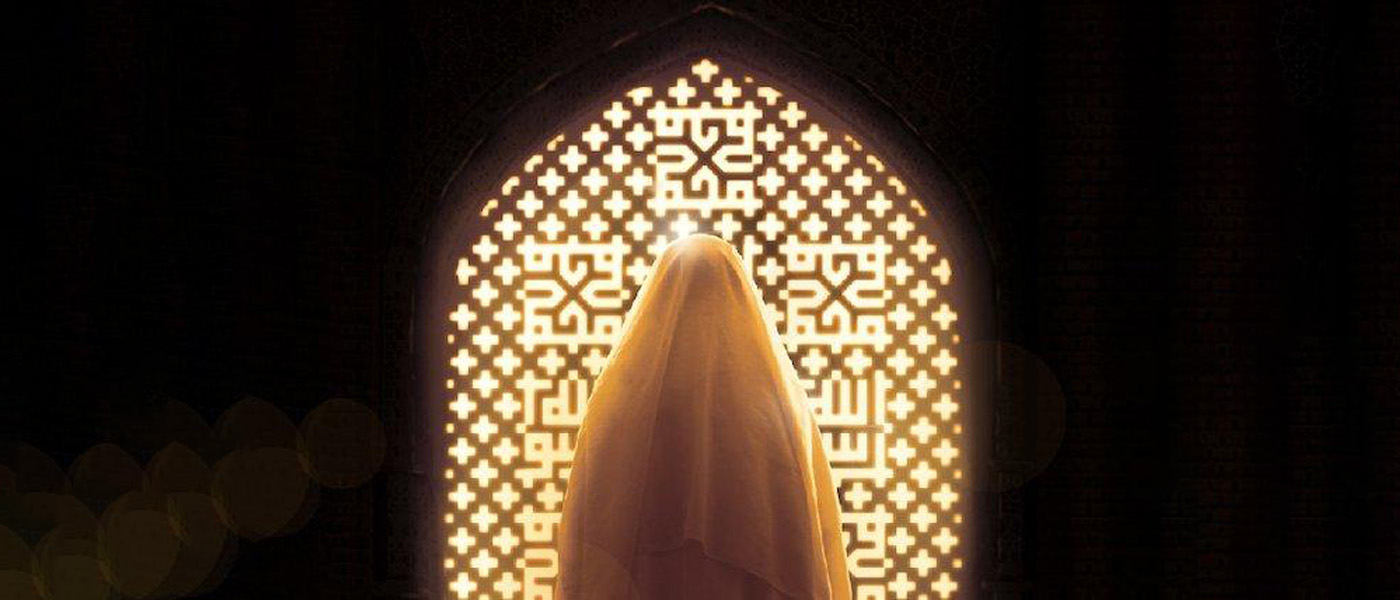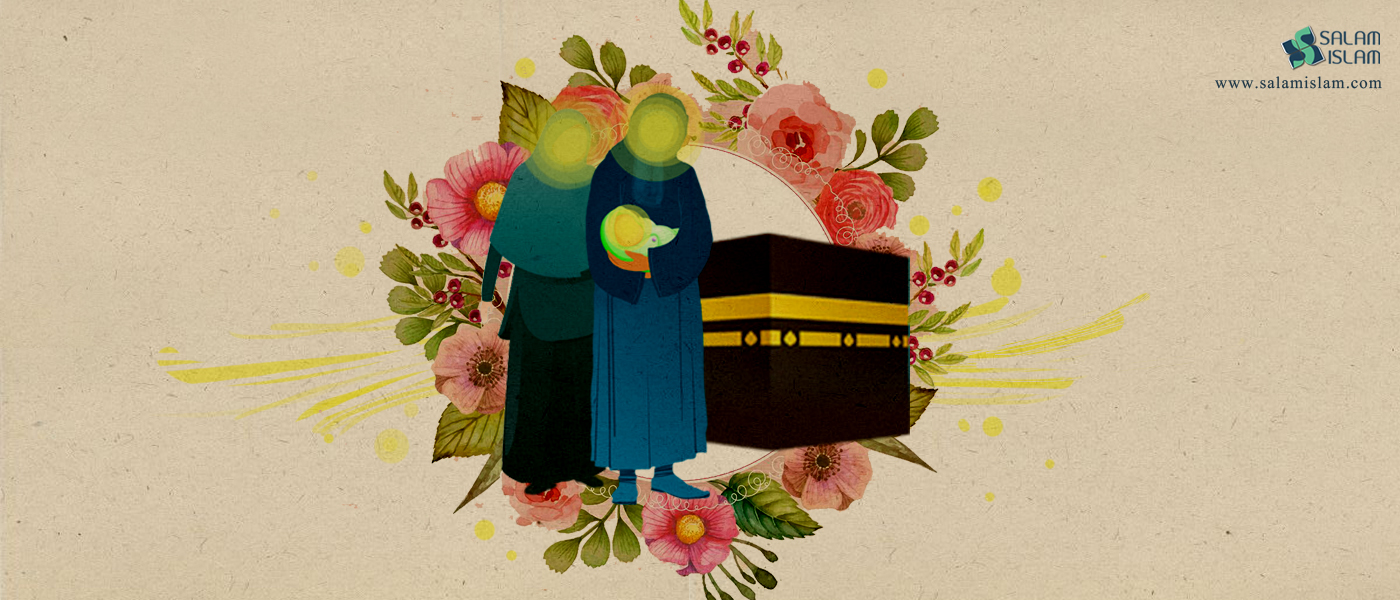

Can I Convert to Islam And not Wear Hijab?
To answer this question about wearing Hijab, we should first understand why God has sent down religion to man and why He orders man what to do and what to avoid.
Imagine a person who invents an electronic device, for example, a computer; he knows how the computer should be used to give the best outcome. Therefore, there is always a manual coming with the computer that tells us how to use it for a better result. So the user uses the manual to keep the computer safe and productive.
God has created man, and He knows what is good and what is harmful to him/her. He sent the religion and the Quran as a guide for human beings. Following the instructions in the book will lead to the useful, peaceful and productive life of a human.
Why so many hard rules?
Some people say that being a Muslim is not merely to pray or fast or observe the Islamic clothing rules (Hijab), but it is the faith of a person that makes him/her a true Muslim, and obeying the Islamic rules is not as important as having pure faith in God. But the fact is that reaching such levels of faith is only possible by passing the phase of being in complete obedience to God.
Islam means submission and being a Muslim means that one accepts to submit to God’s orders. The father of all Muslims, Christians, and Jews according to the Quran is Prophet Abraham (PBUH): “the faith of your father, Abraham. He named you ‘Muslims’ before” (22: 78). Therefore, from the time of Prophet Abraham (PBUH) the followers of all monotheist religions are called Muslims.
Although some Islamic rules may look hard to obey, the fact is that “Allah desires ease for you, and He does not desire hardship for you” (2: 185), and the rulings of Islam are to make our life easier, not harder. God has provided specific frameworks for us to reach a comfortable, peaceful and prosperous life, and to face fewer challenges in life. One of those rules is observing the Islamic dress code (wearing Hijab).
Our problem is that we can only see limited dimensions of an issue. For example, in case of the Islamic dress code (Hijab), we just see that it may be hard for women to cover up in a specific way. Or they may be unable to present their beauties in the society, while the Islamic dress code (Hijab) is there to make women protected in their social relations. Hijab is for women to be respected and recognized because of their character, beliefs and capabilities, NOT their appearance and physical beauty. It also helps them be less troubled by those men who have sick hearts [i].
Can one be a Muslim and not wear the Hijab?
Before one realizes that Islam is the real truth and as long as people are in search of the truth, there is no blame on them for not being a Muslim and not following the Islamic rules. But, as soon as one understands that Islam is the true religion from God and the most perfect one, then he/she should logically become a Muslim.
After accepting the main principles of Islam (the Islamic axioms), if you have only a few misconceptions about some of the Islamic rulings such as the Islamic dress code (Hijab), it is suggested that you embrace and try to observe all the Islamic rules, especially the Islamic dress code (Hijab).
This is just like taking a prescription from our GP when feel obliged to take all the medicine for a better result without knowing the reason for using some of it. As you start acting according to some of those rules that do not make sense to you, you can begin to study and to understand the reason for some details that may be unknown to you right now.
When we believe in Islam, we should believe in it as a whole. It is not correct to accept some parts of it and reject the other parts because in that case, the peaceful life that is promised to Muslims by obeying all religious rules will not be reachable. This uncompleted obedience is like a machine that has lost some of its components and does not work properly. A Muslim who does not obey all the rulings still counts as a Muslim but does not gain the entire benefits that Islam can bring to a person with complete obedience.
Remember again that Islam means being submissive to God’s orders. We always aim to be the best at something that we start. For example, we may strive to be the best in our education or our career. The same should be with our religion so that one day we may enjoy being as friendly to God as Abraham (PBUH).
“Who has a better religion than him who submits his will to Allah, being virtuous, and follows the creed of Abraham, a Hanif? And Allah took Abraham for a dedicated friend.” (4: 125)
Conclusion
Becoming a Muslim and obeying the Islamic rules has its own adversities, but at the same time, it has many advantages. A real Muslim who does not only stick to apparent rules of Islam and uses the spiritual tips and hints for his/her spiritual growth can reach the most peaceful life; “Look! The friends of Allah will indeed have no fear, nor will they grieve” (10: 62)
Notes:
[i] Hijab
Share This Article

Khadijah, One of the Best Women of Islamic Humanity
The first days of Islam were very difficult days for the Prophet (PBUH&HP) because he did not have many followers and the infidels could conspire for the Prophet (PBUH&HP) more easily. They even attacked his house to assassinate the Prophet (PBUH&HP), but thanks to Allah, this conspiracy was in vain. But in these difficult days, the Prophet (PBUH&HP) had very valuable companions with him, one of these precious followers was the wife of the Prophet, Lady Khadijah (AS). Now we want to know more about the Prophet's wife and her services to Islam and Muslim women.
A short identity of Lady Khadijah (AS)
Lady Khadijah (AS) was from the Quraysh tribe. Her father was Khuwaylid and her mother was Fatima, daughter of Zaydeh, both of whom were among the most rooted and noble Arab families in the Hejaz. Khuwaylid was the eldest of his tribe during the pre-Islamic period. Before the advent of Islam, Khadijah was considered one of the most prominent Quraysh women, so much so that she was called by the Lady of Quraysh women.
Although she was a beautiful and wealthy woman and had a lot of suitors, she did not accept them and started a business with the big amount of money she had. Until Prophet’s uncle asked his nephew to work for Khadijah like his other relatives, and he went to the Sham business on his behalf, and so it was continued. The decency of Muhammad (PBUH&HP) and his talent, merit, distinguished personality, and reputation for fiduciary duty made him famous in particular and in general that he was called "Muhammad Amin" *. This news and reports made Khadijah fascinated by her lineage, merit, character, and liking.
The first Muslim woman
Lady Khadijah (AS) was the first Muslim woman in promoting Islamic culture and as a role model of a Muslim woman has played a great role and many women have learned lessons from her practical training. She was so faithful that even the Prophet (PBUH&HP) said this about her in various narrations, we will read some of them to know more about her great role and practical lessons:
1) The best women in the world are Khadijah and Maryam, the daughter of Imran (1)
2) One day, the Messenger of God (PBUH&HP) drew four lines. Then he asked: Do you know what these lines are? People said: God and His Messenger are more knowledgeable. The Prophet (PBUH&HP) said: The best women of Paradise are Maryam, the daughter of Imran, Khadijah, the daughter of Khuwaylid, and Fatimah, the daughter of Muhammad (peace be upon her), and Asiya, the wife of Pharaoh. (2)
Lady Khadijah (AS) Services to Islam
In 24 years of living together with the Holy Prophet of Islam (PBUH&HP), Khadijah performed many services for the religion of Islam. The financial, spiritual, and emotional support of the Prophet (PBUH&HP), the acknowledgment of the Prophet in a time when no one approved of him, and his help against the persecution of the polytheists are some of these valuable services. After marrying the Prophet (PBUH&HP), Khadijah gave her property to him so that he could spend it however he wanted. The Holy Prophet of Islam says in this regard: "No wealth was as useful to me as the wealth of Khadijah."(3)
Khadijah, this noble lady not only believed in the message of the Prophet from the bottom of her heart but also helped him in the face of hardships and denials of polytheists and ill-wishers. While she was alive, she did not allow the persecution of the polytheists to be severe on the Messenger of Allah (PBUH&HP). When the Messenger of Allah (PBUH&HP) came home with a load of calamity and sorrow, Khadijah comforted him and removed the worry from his mind. The property of Khadijah was used as a suitable tool in the service of Islam and its development from the very beginning. Interestingly, the last part of Khadijah’s property was spent by Imam Ali (AS) during his emigration trip to Medina. Most Muslims traveled with Khadija's property. The last of them was a caravan led by Imam Ali (AS). (4)
She was also the mother of Fatima (AS), from whom the generation of Imams was born. Imam Sadigh (AS) said: "When Khadijah (AS) chose the Holy Prophet (PBUH&HP) as her husband, the women of Mecca turned away from her because of enmity. Not only did they not greet Khadijah; they even prevented other women from visiting her. In this way, a strange terror overwhelmed Khadijah.

Of course, she was more afraid of the Prophet (PBUH&HP) to be harmed than herself. When Khadijah became pregnant with Fatima, Fatima spoke to her in her mother's womb and advised her to be patient, but Khadijah kept this secret from the Prophet until one day she entered and heard that Khadijah was talking with someone. He looked around; but he did not see anyone, he asked: O Khadijah! Who are you talking to? Khadijah, in response, told that she was talking to the child she had in her womb, Prophet (PBUH&HP) replied: “Gabriel informed that this is a girl child. She and her descendants are pure, blessed, and Allah will create my descendants from him. From his generation are born the Imams of the religion and the Almighty, after breaking the revelation, makes them his successors on earth.” (5)
Conclusion:
The position and role of lady Khadijah (AS) in the most difficult period of the history of Islam this affair is common knowledge. she played an important role in establishing and spreading Islam during the Besat** period with her material and spiritual support of the Holy Prophet (PBUH). She is a role model for men and women in society because she raised many human values and perfections inside herself. She gave all his wealth, economic facilities, and existence in the way of satisfaction of Allah and also with the spiritual, psychological, and social support for her husband, Prophet (PBUH), in promoting Islam and advancing its goals, thus making his name as a real and true model for a Muslim woman. She died in the tenth year of the Besat and shortly after the death of the Prophet’s uncle, Abu Talib (AS). Muslim women can learn from the practical lessons of lady Khadija (AS) throughout the history of Islam to be behind their husbands in any case and not to withhold any support from him.
References:
- Al Umdah Ibn Tariq (page 405)
- Sirat Ibn Hisham (first Volume - Page 168)
- Encyclopedia of Shia (second volume – page 47)
- Encyclopedia of Shia (second volume – page 49)
- Encyclopedia of Shia (third volume – page 46)
* Amin means a trustee and someone who is trusted to keep the treasure of others while he does not betray or abuse the trust others gave him.
** Besat refers to the election of Prophet Mohammad (PBUHHP) as a prophet and the beginning of his mission
Read More

Fatimah (AS) the Daughter of Prophet Muhammad (PBUH&HP)
The status of Fatimah, the most beloved daughter of Prophet Muhammad (PBUH&HP) and Khadijah, is so great within the religion of Islam that our last prophet has said: “Fatimah (AS) is part of me, whoever annoys her, annoys me and whoever pleases her, in fact, he/she pleases me” [1] He has also said: “Fatimah (AS) is the leader of the women of the worlds and a role model for all Muslim women” [2].
The history of Islam has witnessed the immense respect that the Prophet (PBUH&HP) had for Fatimah Zahra (AS) which also reflects the importance of women in society. In pre-Islamic times when Arabs would bury their daughters alive, Allah revealed the Chapters of al-Kawthar, and Dahr with the birth of Fatimah (AS) to praise her [3].
According to some Quran commentaries, when the Quraysh tribe [i] said that the Prophet (PBUH) had no offspring, the chapter of al-Kawthar was revealed:
“Indeed We have given you abundance (al-Kawthar);
So pray to your Lord and sacrifice,
Indeed it is your enemy who is without posterity” (108:1-3).
Al-Kawthar means the abundant good, i.e., the abundant offspring that the Prophet (PBUH) would have through his daughter Fatimah Zahra (AS) especially after the death of his son (Qasim), which made the Quraysh men say he was cut off from male children. In fact, this was a reply to those people and their effort to weaken the Prophet's spirits just because he did not have a son [4].
Childhood of the Fatimah (AS), the Daughter of Prophet Muhammad (PBUH&HP)
Fatimah (AS), the daughter of Prophet Muhammad (PBUH&HP) was born on the 20th of Jumada al-Thani (the sixth month of the Islamic Lunar calendar), five years after Muhammad (PBUH)’s prophetic mission (Be’that).
After losing her mother as a young child, she looked after her father so devotedly that Muhammad (PBUH&HP) used to call her “Umme Abiha”, i.e., the mother of her father. This was a really hard time for the family because Abu Talib (the leader of Banu Hashim [ii] and the prophet’s uncle) who was the protector of Muhammad (PBUH&HP) from the animosity of the Quraysh also died in the same year as Khadijah.
So in Fatimah’s (AS) early childhood, there was no place for leisure and playing childish games. Rather, she fulfilled an important role accompanied by motherhood characteristics in her father’s life with all the suffering, mockery, and humiliation he was facing. She would comfort him, empathize with him, relieve his pain, and take care of him with kindness [5].
Marriage
When it was the right time for the daughter of Prophet Muhammad (PBUH&HP), Fatimah (AS), to get married, and after her cousin, Ali ibn Abi Talib (AS) proposed to marry her, the Prophet (PBUH&HP) consulted with her and asked if she would accept his marriage proposal. In fact, Muhammad (PBUH&HP) wanted to encourage Muslims to also seek their daughters’ opinions and avoid wrong pre-Islamic beliefs about girls.
When Fatimah (AS) was asked about this (Ali (AS)’s proposal), she respectfully sought her father’s advice and the Prophet (PBUH&HP) said: “God has authorized this marriage”. Fatimah (AS) then replied that she was satisfied with what Allah and His Prophet (PBUH&HP) were pleased with.
Fatimah (AS) was the model of Prophet’s teaching among women just as Ali ibn Abi Talib (AS) was the best embodiment of his instructions and manly qualities among men; they were the most suitable couple to be married. So after receiving Fatimah’s (AS) consent, their marriage took place in the simplest possible manner [6].
A few days later, the Prophet (PBUH&HP) called on his daughter and asked her how she had found her husband. She said that he was the best companion in devotion and obedience to God. Later, he asked Ali (AS) how he had found his wife, and he said that he found her the best companion in giving service to the Creator.
Fatimah Zahra (AS) aided her husband in his worldly and religious affairs and cooperated with him in achieving his exalted goals. She was responsible for the household work; made dough, baked bread, and cleaned the house; in return, Ali (AS) vouched to take care of the outside work [7].
It has been narrated that once Imam Ali (AS) saw that Fatimah (AS) had been working so hard that she got blisters on her hands. He decided to ask the Prophet (PBUH&HP) for a housekeeper. But Prophet Muhammad (PBUH&HP) said that he would teach them something instead that would do them better than having a housemaid. He told them to recite the Tasbih of Fatimah Zahra before sleeping; that is 34 times “Allahu akbar,” 33 times “al-hamdu lillah,” and 33 times “Subhan Allah.”
It is strongly recommended to say this Tasbih [iii] as a devotional act after each prayer.
Children
God bestowed upon Fatimah (AS) and Ali (AS) four children; two sons, Hassan (AS) and Hussain (AS), who were the second and the third Infallible Imams; and two daughters, Zainab (AS) and Umme Kulthum (AS).
Fatimah (AS) portrays excellence in her role as a mother and displays a model for all the God-fearing parents in the upbringing of her four children. It has been narrated by a companion of the Holy Prophet (PBUH&HP) that one day the daughter of Prophet Muhammad (PBUH&HP) was busy grinding some grain when her older son Imam Hassan (AS) started crying. The companion offered to help her with comforting the child, but Fatimah (AS) preferred to take care of her son herself. This shows how important it is for a child to have her/his mother around her/him as much as possible since only a mother can truly soothe her child and no one else can be as much of comfort as a mother [8].
She always read passages from Quran when she put her children to sleep in the crib and so they all grew up hearing Quran from their infancy, and the words of God became etched upon their young hearts. Through such osmosis, the Quran and the children of Fatimah (AS) became inseparable for all time [9].
The status of Lady Fatimah (AS), the Daughter of Prophet Muhammad (PBUH&HP)
It has been said that this blessed family vowed to fast for three days if their sons recovered from an illness. They became well, and the family fasted for three consecutive days without eating any food giving away their Iftar (breakfast) [iv] to a beggar, an orphan, and a prisoner who arrived at their door and asked for food. The 76th chapter of the Quran (Dahr) was revealed in praise of this family and their extremely charitable act in the way of Allah [10].
“They fulfill their vows and fear a day whose ill will be widespread. They give food, for the love of Him, to the needy, the orphan and the prisoner, saying, ‘We feed you only for the sake of Allah. We do not want any reward from you nor any thanks.’ Indeed we fear from our Lord a day, frowning and fateful. So Allah saved them from the ills of that day and granted them freshness and joy. And He rewarded them for their patience with a garden and garments of silk” (76:8-12).
Fatimah (AS) actually showed such generosity and compassion for the poor that no destitute or beggar ever returned from her door unattended.
As well as being an exemplary daughter, a loving and supportive wife, and a caring mother, she played an active part as a very powerful, intellectual, and aware member of the society.
Along with all her feminine qualities, she was well-aware of her rights and whenever necessary stood up for them, instead of suffering like a helpless victim. She would make herself available for people who needed answers or clarifications on complicated issues. Her sermons and sayings are evidence of her strong character and noble mind.
She was also a very courageous lady who accompanied the Prophet (PBUH&HP) in many wars. Her genius, wisdom, determination, will-power, piety, patience, knowledge, and nobility, both in words and deeds, were inherited from her illustrious father.
In short, the existence of Fatimah Zahra (AS), the daughter of Prophet Muhammad (PBUH), along with her skills of eloquence, her political and social expertise, and powerful foresight, demonstrates how a Muslim woman can attain high spiritual and mystical positions and how a woman can play different roles powerfully, and positively influence the course of history by her social contribution [11].
Notes:
[i] A powerful merchant tribe that controlled Mecca and its Kaaba and that according to Islamic tradition descended from Ishmael. Prophet Muhammad (PBUH&HP) was born into the Banu Hashim clan of the Quraysh tribe.
[ii] A clan of the Quraysh tribe
[iii] The repetitive utterances of short sentences in the praise and glorification of Allah.
[iv] The evening meal with which Muslims end their daily Ramadan fast at sunset.
References:
Read More

